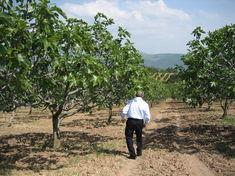
Agrexco is capitalising on Israel’s fig potential to keep pace with a recent surge in demand.
Rob Cullum product manager at Agrexco UK said the company stepped up its fig programmes eight years ago and has been manipulating age-old fig-growing regions to maximise harvesting potential.
“We knew we had to look at different ways to extend the season, so we looked at developing different growing areas and using different techniques to allow a secondary crop from the same areas, thereby allowing us to achieve our goal of stretching our season considerably,” he said.
Agrexco works two fig seasons from June until mid-August and then late-October until the end of February, although this has now been extended, with some arrivals coming as late as the end of May.
“These trials are ongoing and we hope to have more stable volumes as this goes on,” Cullum said.
The company has also been learning how best to accommodate the segmentation of the category.
“We quickly realised the best solution for fig growers was to have a single marketing body enabling the sale of the entire crop at all times and at all stages of maturity, irrespective of sizes. For example, certain supermarkets and/or countries have a preference for bigger/smaller fruit. Some would rather have forward fruit, some backward. With our branch network system we can target the correct fruit to the right receiver on a daily basis,” he claimed.
Having experienced an intense increase in demand for the product, Agrexco is even taking a stake in competitor countries to offer customers a 12-month supply.
“With one of the biggest growers in Turkey we are now entering our fourth season and we have also developed Peru, supplying figs from November through to late February, and Argentina, bringing in from late December to the end of March,” said Cullum.
“All of these sources are working with varieties that are suitable for our customers, reaching the high standards required and expected. Without these assurances it would not work.”



